
Group 1 – Calcium phosphates and composites
Research directions:
- Synthesis and characterization of calcium phosphates
- Development of inorganic/organic composites for bone tissue regeneration
- Development of calcium phosphate bone cements
- Development of inks for 3D bioprinting applications
- Development of cold sintering technology for applications in medicine
Fields of expertise: synthesis of calcium phosphates and composites, ceramic technologies, sintering, instrumental analysis of materials
Group leader: (temporary substitute) Prof., Dr.sc.ing. Janis Locs
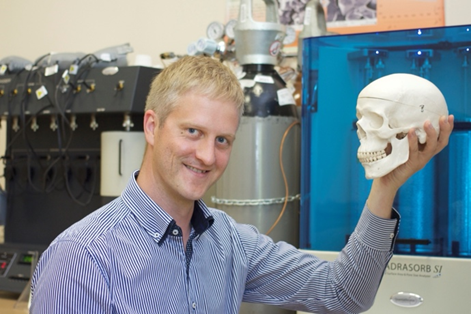 Prof., Dr.sc.ing. Janis Locs
Prof., Dr.sc.ing. Janis Locs
ORCID ID: 0000-0003-3162-7431
Prof., Dr.sc.ing. Janis Locs is the director of the Institute of Biomaterials and Bioengineering and coordinator of the BBCE project. Within the project, he is also the direction leader of the group 1 (Calcium phosphates and composites). Prof. Locs has a broad international cooperation experience with academy and industry, being the coordinator and partner of multiple national and European projects (LZP project no. lzp-2018 /1-0238 , ERA-NET, EuroNanoMed III "ImplantNano", H2020 FLAMIN-GO, H2020 RISEus2, etc.). His expertise encompasses the management of human resources, and materials science, as well as the synthesis and functionalization of composites and calcium phosphate-based biomaterials for orthopaedic and maxillofacial implant applications. He has supervised PhD students (ten), post-doctoral researchers (four), BSc and MSc (>20), and Erasmus students (two).
Dr.sc.ing. Kristaps Rubenis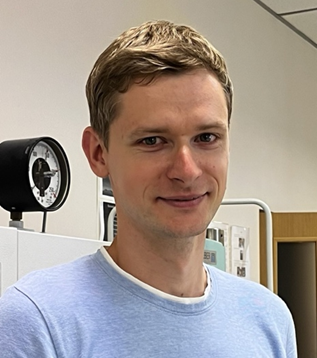
ORCID ID: 0000-0002-9044-8479
Dr.sc.ing. Kristaps Rubenis is a leading researcher in materials science with a focus on biomaterials at Riga Technical University. He earned his PhD in materials science in 2017 from the Riga Technical University. His research interests include the synthesis of calcium phosphates and cold sintering of low-crystalline calcium phosphates and their composites with biopolymers for bone tissue engineering applications. He has been involved in several EU-funded projects and currently is involved in H2020 EU-funded project: Baltic Biomaterials Centre of Excellence (BBCE), and EEA Grants supported project “Waste-to-resource: eggshells as a source for next generation biomaterials for bone regeneration (EGGSHELL)”. He has authored more than 25 research articles.
Dr. Jana Vecstaudza
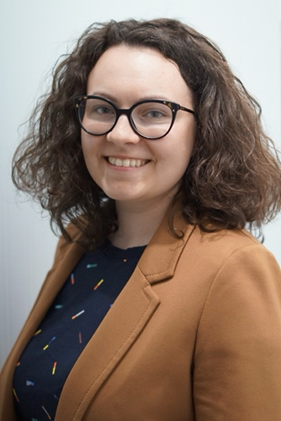
ORCID ID: 0000-0002-1864-1274
Dr. Jana Vecstaudza obtained her MSc in Chemical Engineering from Riga Technical University (RTU, Riga, Latvia), and her Ph.D. in Materials Science from RTU. In her Ph.D. thesis, she developed synthesis technology for obtaining amorphous calcium phosphate biomaterials with high specific surface area for bone regeneration. About the results obtained in her PhD thesis, she has been awarded the “L'Oréal Women in Science” Baltic Award (2019). Currently, Dr. J. Vecstaudza is a postdoctoral researcher at the Institute of Biomaterials and Bioengineering of RTU and the Baltic Biomaterials Centre of Excellence. She has participated in implementing several international and national research projects since 2011. Now, she’s involved in several EU H2020 projects: Baltic Biomaterials Centre of Excellence (BBCE) and "From pathobiology to synovia on chip: driving rheumatoid arthritis to the precision medicine goal" (FLAMIN-GO). Her research is devoted to the development of calcium phosphate-based biomaterials (powders, ceramics, hydrogels) for bone and cartilage repair and regeneration, calcium phosphate synthesis and characterization, 3D (bio) printing, organs on a chip, and material physicochemical property characterization.
Dr. Rajan Choudhary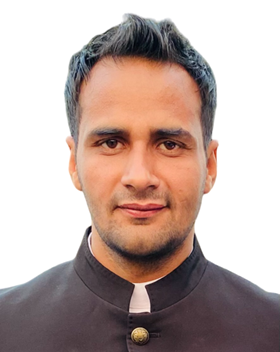
ORCID ID: 0000-0001-6370-8071
Dr. Rajan Choudhary is a passionate biomaterials researcher with a profound interest in understanding the intricate relationship between composition, structure, and bioactivity. He is dedicated to advancing knowledge in the field of biomaterials and has committed his career to the development of materials capable of healing bone infections and facilitating tissue regeneration. Dr. Rajan Choudhary earned his Doctor of Philosophy (Ph.D.) in 2018 from Vellore Institute of Technology, where he conducted extensive research into the bioactivity and antibacterial properties of various silicate ceramics. During his first postdoctoral position at the National University of Science and Technology 'MISiS,' he focused on the development of biocomposites designed to replicate the complex structural integrity of natural tissues. Currently, Dr. Choudhary serves as a postdoctoral fellow at the Baltic Biomaterials Center of Excellence, and his research is centered on studying octacalcium phosphate (OCP) for bone tissue regeneration. He developed a novel, reproducible, and ultra-fast co-precipitation synthesis process for preparing OCP. Additionally, OCP was incorporated as an inorganic filler in biopolymer to prepare composites using electrospinning and melt electrowriting techniques during long-term training at the Institute of Biomaterials, Friedrich Alexander University Erlangen-Nuremberg, Germany. With over nine years of experience, his multidisciplinary approach combines chemistry, materials science, and engineering to advance the field of bone tissue regeneration.
PhD student: Abhishek Indurkar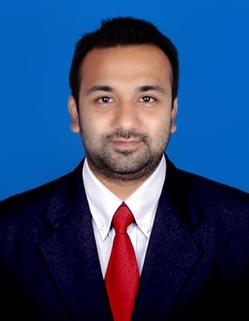 ORCID ID: 0000-0002-3971-9077
ORCID ID: 0000-0002-3971-9077
In 2017, I graduated from KIT's College of Engineering in Kolhapur in biotechnology engineering. Following this achievement, I continued my academic journey, obtaining a master's degree in Pharmaceutical Biotechnology from the Institute of Chemical Technology in Mumbai, India in 2019. During my master's program, I was deeply involved in pioneering research, specializing in the development of a standardized bioink protocol for 3D bioprinting of mammalian cells and the comprehensive characterization of freeze-dried scaffolds. Subsequently, I undertook a valuable internship at Pandorum Technologies Pvt. Ltd. in Bangalore, India, where I contributed to bioink development for Corneal Stromal Lenticule, diversifying my expertise across various tissue types. Currently, I am a doctoral student at Riga Technical university, and a part of Baltic Biomaterials Centre of Excellence. My doctoral research is primarily centered on the advancement of biomaterials for bone tissue regeneration, with a focus on inorganic materials and composites, such as amorphous calcium phosphates and bioinks. My overarching goal is to continually push the boundaries of tissue engineering, striving to contribute to groundbreaking regenerative solutions that hold the potential to revolutionize healthcare and society. Throughout my academic and research journey, my enduring aspiration remains rooted in the creation of artificial tissues and organs that can profoundly impact healthcare and society as a whole.
Bachelor's student: Renats Vasiljevs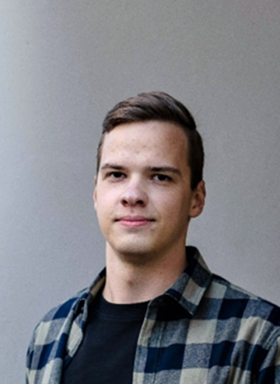
ORCID ID: 0000-0003-3838-8293
Currently, R. Vasiljevs is 4th year bachelor's student at Riga Technical university in study program Chemistry and chemical technology. He works as a scientific assistant at RTU Institute of Biomaterials and Bioengineering.
Within the BBCE project, he focuses on the development of gallium-containing calcium phosphate biomaterials (powders and ceramics). R. Vasiljevs also is involved in the EuroNanoMed3 project "NANO delivery system for one-shot regenerative therapy of peri-implantitits" (ImplantNano).
BBCE project´s main objective is to establish a joint Baltic Biomaterials Centre of Excellence for advanced biomaterials development based on the long-term strategic cooperation between AO Research Institute Davos, Switzerland (ARI) and Friedrich-Alexander University of Erlangen-Nuremberg, Germany (FAU) on the one hand and RTU RBIDC, LIOS, RSU and RSU IS on the other hand.

